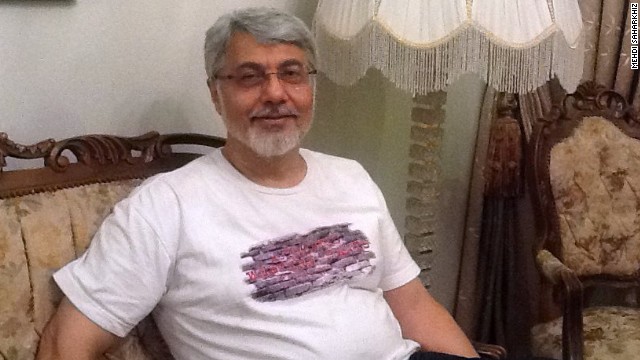News

Iranian authorities have transferred reformist journalist and political figure Isa Saharkhiz to solitary confinement without explanation, according to his son.
Saharkhiz, who suffers from severe kidney problems and heart disease, has been on wet hunger strike (refusing solid foods) since early November 2015 to protest his unjust arrest.
“My father has lost 20 kg,” Saharkhiz’s son, Mehdi, who is based in the U.S., told Kaleme news website on February 21. “My family visited him at Evin Prison 10 days ago; his health condition is very bad. We haven’t received any news about his situation since he was moved to a solitary cell.”
Two days earlier, on February 19, Saharkhiz had told his family by phone that he would be transferred to solitary confinement. According to Mehdi, he did not explain why. “I assume he was not allowed to say,” Mehdi said.
Iran’s judiciary has not responded to the family’s enquiries, nor have they informed Saharkhiz’s lawyer as to why he has been transferred to solitary confinement.
In late December 2015, Saharkhiz agreed to end his hunger strike after receiving promises from the prison authorities. But already after a few weeks, he announced he is back to only drinking liquids like water and juice.
Saharkhiz was arrested on November 3, 2015 along with at least three other journalists by Iran’s Revolutionary Guards, who accused them of being members of an “infiltration network” colluding with hostile Western governments.
Alizadeh Tabatabaei, the lawyer for Saharkhiz and two of the other journalists, said earlier this month that the investigator had not been able to make a case for “infiltration”. Instead the journalists have been charged with “propaganda against the regime” and “acting against national security.”
Tasnim News – an agency affiliated with the Revolutionary Guards – reported on February 21 that the trial of Isa Saharkhiz, Ehsan Mazandarani and another journalist is set for March 6 before Judge Maqiseh.
In his interview with Kaleme, Mehdi confirmed the date of the trial, but said his father’s lawyer had still not been allowed to view the file.
“While his trial is coming soon, my father has not met with his lawyer at all. And now he’s in a solitary cell,” Mehdi said and added: “Why don’t they follow the law? According to Iranian law my father should be released on bail awaiting trial.”
In an interview with Journalism Is Not A Crime in November 2015, Mehdi linked the arrest of his father to the elections for Iran’s parliament and Assembly of Experts, which takes place on Friday. Dozens of journalists, poets and artists have been arrested or sentenced to prison in the last couple of months in what seems to be a preventive crackdown on free expression ahead of the elections.
The reformist journalist has already spent four years in jail in Iran, including nine months in solitary confinement following the disputed 2009 presidential election in Iran. Back then he also went on hunger strike, which caused his heath to deteriorate.
Related articles:
Arrest of Isa Saharkhiz Signals New Crackdown on Journalists in Iran
Journalist Isa Saharkhiz Ends 48-Day Hunger Strike
Reformist Journalist Isa Saharkhiz Back on Hunger Strike
90 Iranian Journalists Call For Release of Detained Colleagues